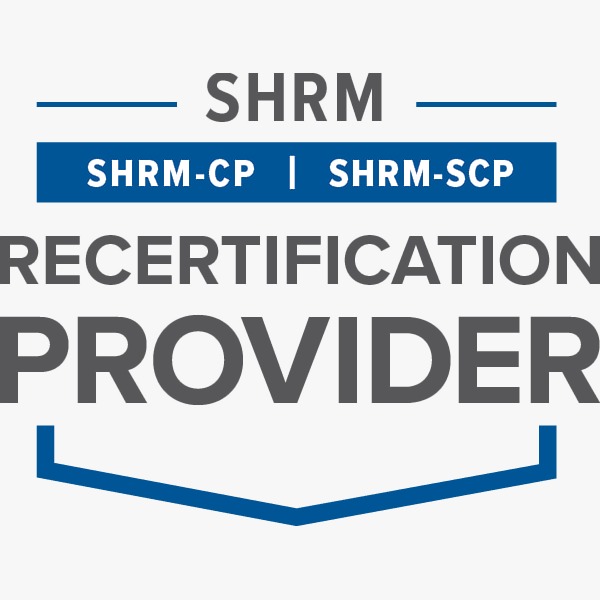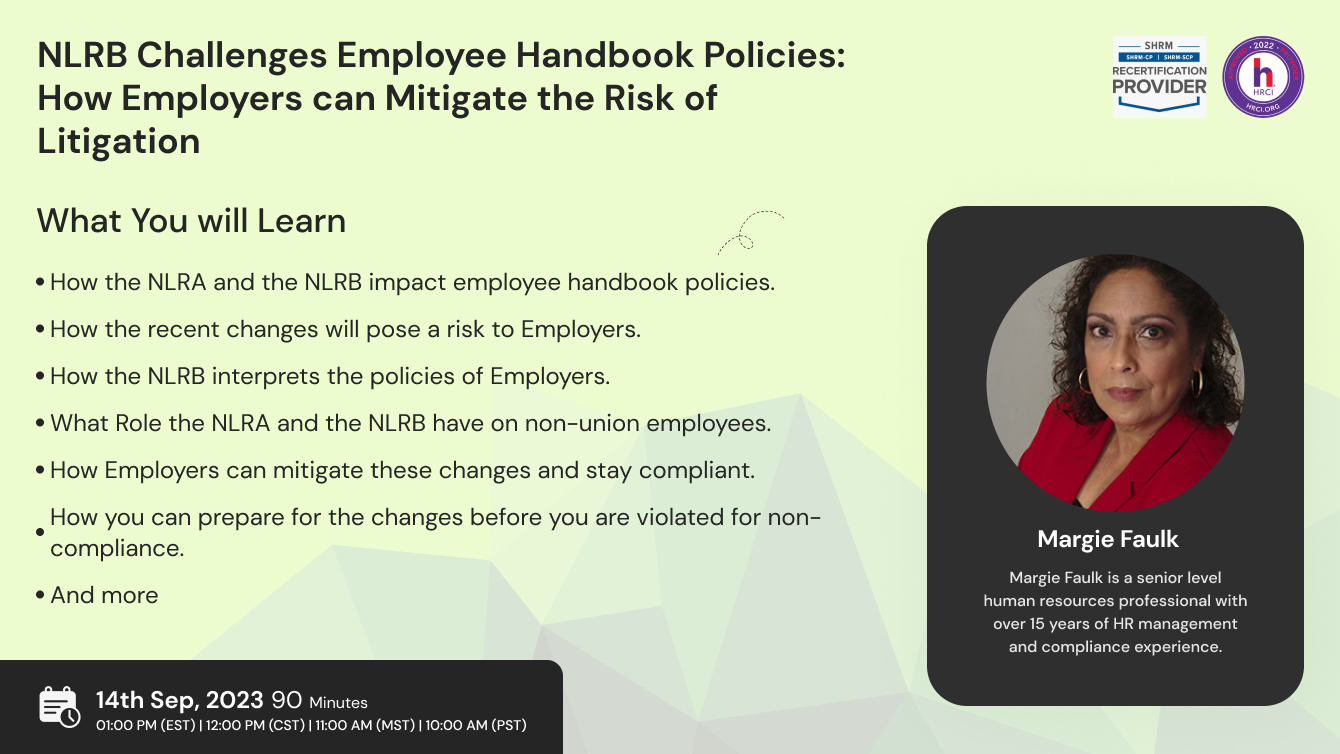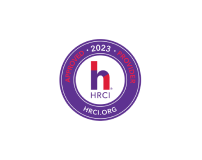Employee Handbooks: The Biggest Compliance Changes in 2023!
Employers will need to think carefully about how to defend some of their corporate policies, such as ones about cameras at a worksite, social media use, and appropriate workplace conduct, in light of a recent decision by the National Labor Relations Board (NLRB).
In Stericycle, an administrative law judge found that the employer violated the NLRA by maintaining certain policies for its employees that addressed personal conduct, conflicts of interest, and confidentiality of harassment complaints. The NLRB announced a new standard for whether work rules violate the NLRA and sent the case back to the judge to consider the ruling in light of the new standard.
Under that standard, if an employee could reasonably interpret the work rule to have a coercive meaning, the NLRB general counsel would have met her burden to prove that the rule has a reasonable tendency to chill employees from exercising their NLRA rights.
A code of conduct or other Employee Handbook policies will certainly be impacted by this decision. Other impacted policies would be nondisclosure agreements, confidentiality agreements, any policies requiring respectful conduct, or policies regulating social media use.
Learn how Employers should review and make changes to their Employee Handbook policies to comply with the NLRB Rules and avoid allegations of violations of Concerted Activity Laws.
The NLRB enforces the National Labor Relations Act, which gives both unionized and non-union employees certain rights in the workplace. Find out how the changes at the NLRB may affect your company and why you might want to start making changes in your Employee Handbook now.
What You will Learn
- How the NLRA and the NLRB impact employee handbook policies.
- How the recent changes will pose a risk to Employers.
- How the NLRB interprets the policies of Employers.
- What Role the NLRA and the NLRB have on non-union employees.
- How the Stericycle case decision will impact how Employers will interpret NLRB enforcement.
- How employees can have leverage over Employers based on Employee Handbook policies on disciplinary actions involving employee workplace behaviors.
- What policies are at risk to violate the new NLRB Laws.
- How Employers can mitigate these changes and stay compliant.
- How you can prepare for the changes before you are violated for non-compliance.
- How policies impacting confidentiality and communication have to be adjusted to avoid litigation.
- Which policies should be revised immediately.
Why You Should Attend
Employers should also "immediately review their policies and handbooks to determine if any of their existing policies could reasonably be interpreted by employees as chilling their right to engage in concerted activities and consider adding disclaimers that the policies are not intended to restrict employees' rights under the NLRA.
The new rule applies retroactively, so even those employee handbooks drafted and implemented before the Stericycle decision are subject to this heightened level of scrutiny.
The NLRA protects "concerted activities" that employees engage in to improve working conditions. What is Concerted Activity and Why Should Employers Care?
Protected Concerted Activity is a legal term used in labor policy to define employee protection against employer retaliation in the United States. The term defines the activities workers may partake in without fear of employer retaliation.
Who will Benefit
- All Private Employers
- Business Owners
- Company Leadership
- Compliance professionals
- HR Professionals
- Managers
- Supervisors
- Private Employers in all industries
- Small Business Owners
- Large Business Owners

Margie Faulk
Margie Faulk is a senior level human resources professional with over 15 years of HR management and compliance experience. A current Compliance Advisor for HR Compliance Solutions, LLC, Margie, has worked as an HR Compliance advisor for major corporations and small businesses in the small, large, private, public, Non-profit sectors and International compliance. Margie has provided small to large businesses with risk management strategies that protect companies and reduces potential workplace fines and penalties from violation of employment regulations. Margie is bilingual (Spanish) fluent and Bi-cultural. Margie’s area of expertise includes Criminal Background Screening Policies and auditing, I-9 document correction and storage compliance, Immigration compliance, employee handbook development, policy development, sexual harassment investigations/certified training, SOX regulations, payroll compliance, compliance consulting, monitoring US-based federal, state and local regulations, employee relations issues, internal investigations, HR management, compliance consulting, internal/external audits, and performance management. Margie’s unique training philosophy includes providing free customized tools for all attendees. These tools are customized and have been proven to be part an effective risk management strategy. Some of the customized tools include the I-9 Self Audit. Correction and Storage program, Ban the Box Decision Matrix Policy that Employers can provide in a dispute for allegations, Family Medical Leave Act (FMLA) Compliance Guide, Drug-Free Workplace Volatile Termination E-Book and other compliance program tools when attendees register and attend Margie’s trainings. Margie holds professional human resources certification (PHR) from the HR Certification Institution (HRCI) and SHRM-CP certification from the Society for Human Resources Management. Margie is a member of the Society of Corporate Compliance & Ethics (SCCE).

SHRM -
Standeagle is recognized by SHRM to offer Professional Development Credits (PDCs) for the SHRM-CPSM or SHRM-SCPSM. This program is valid for 1.5 PDCs for the SHRM-CPSM or SHRM-SCPSM. For more information about certification or recertification, please visit - portal.shrm.org.

HRCI -
This webinar has been approved for 1.5 HR (General) re-certification credit hours toward California, GPHR, HRBP, HRMP, PHR, and SPHR recertification through the HR Certification Institute.
The use of this seal is not an endorsement by the HR Certification Institute of the quality of the activity. It means that this activity has met the HR Certification Institute’s criteria to be pre-approved for re-certification credit.

ACCREDITATIONS


